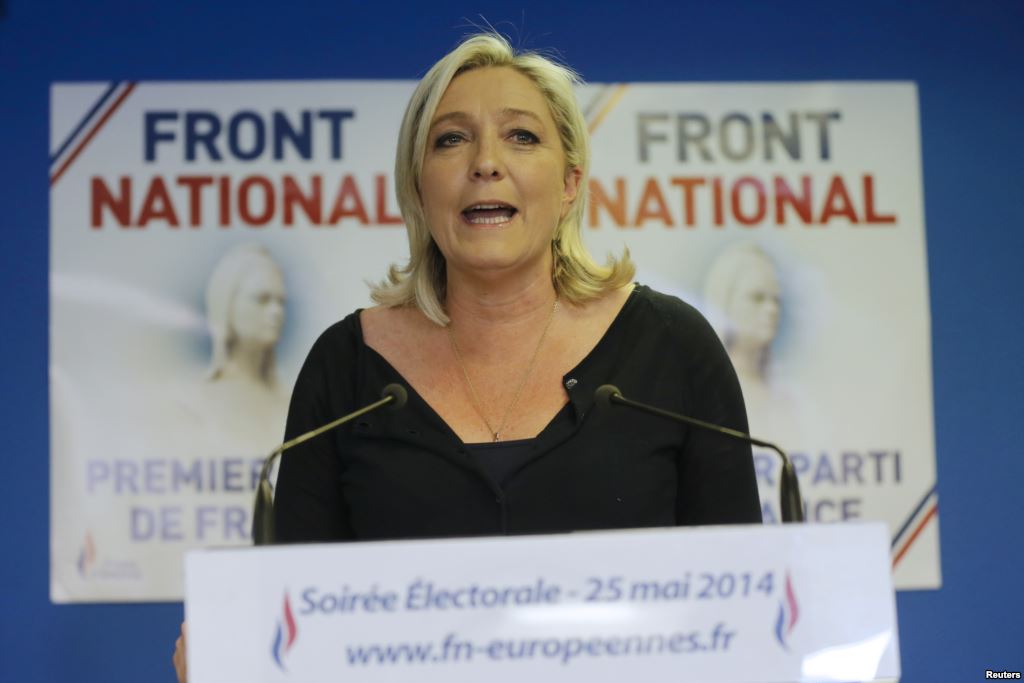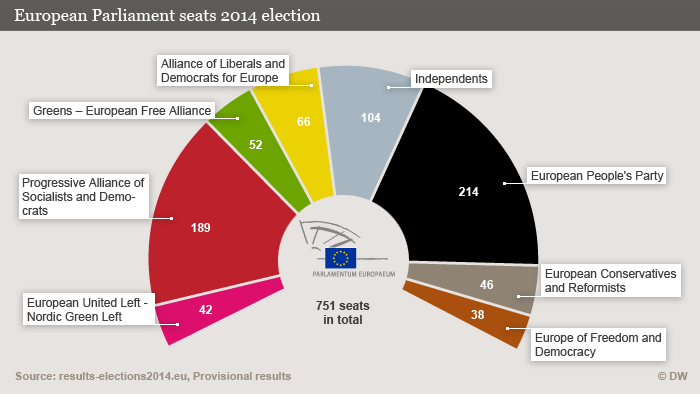Editorial note: Mathieu is a political activist in the international Red and Green Alternative network and also takes part in La Bidule. Below is a short interview we made with him right after the Elections to the European Parliament.
“…we are building a European identity by achieving, in common, the worst electoral results”
How do you see the results in Europe, in general?
The results of the European Elections show a real convergence of the national political situation inside the EU. During previous elections, the results were very heterogeneous: communist organizations very present in the south of Europe, ecological movement in the north, social-democrat success here, neo-liberal victory there… This year, the result are converging:
- hegemony of what we could call the Christian Social Democrat European mainstream (the Christian Democrat and the Social Democrat organizations who are very close on there European project);
- bad results for greens (who were usually the most pro-EU forces);
- good results for the far-right movement and for the Euro-skeptics (which are not always the same);
- stability for the post-eurocommmunist…
We could go further on national specifics (the very good result of Syriza in Greece, or the good results of the radical and alternative left in Spain (some 20%), the middling results of the Dutch far right …) but I believe the main result is: we are building a European identity by achieving, in common, the worst electoral results.
How is the situation in France? There were comments on the increase abstention and blank/spoiled ballot papers; did parties actually increase their number of votes?
The results in France are bad for the left; and very bad for the Parti Socialiste (PS) of François Hollande with an historically small vote but without any benefit for the other left groups: The Greens lost half of their MEPs, the Left Front didn’t progress and the extreme-left lost 3/4 of their votes.
The reasons for abstention are so different that it’s quite difficult to put a significant message on it: being against elections, against Europe, not finding good candidate, forgetting the election … The media cover of the campaign have been so weak that I’ve met several people who even didn’t knew that the election was only one round.Abstentions were still high (56%). It’s just a bit less than on the other European elections in France, but the fact is that French electors don’t vote in European elections (the French abstention rate is close to the result in the other EU countries). But I won’t put together abstention and blank/spoiled vote.
“The results in France are bad for the left; and very bad for the Parti Socialiste (PS) of François Hollande with an historical small result but without any benefit for the other left.”
On the other hand, I believe that the 548.554 blank ballot papers and the 248.950 spoiled papers (for 19.753.140 votes cast) says a lot about a real criticism of the candidates and the electoral system. Four percent of voters who went on the voting booth said “I don’t agree with your proposal”. This is a lot.
There is a growing concern about the rise of extreme right. Do you share these concerns? What exactly does Le Pen plan to do?
Of course I do. The far-right results are especially high in France. The most problematic thing is that over the years, there was an ideological “Republican cordon” around the National Front. When the National Front (FN) got 10%, it meant that extreme right influence advanced 10%. In the same period, the far right influence in UK – for example- was much bigger than British National Front or BNP electoral result. Things have changed in France with Sarkozy w ho broke this “Republican cordon”. Racist and authoritarian speech has tainted the right-wing organizations and – even – the socialist party. Our Prime Minister, Manuel Valls, made unpleasant speeches about the number of white people during a meeting, about the choice that French muslim should make between Islam and Republic, about the Roma population … Even on the real left, there are more and more supporters of a “patriotic left”, a concept that you could find in the French left during the 1789 revolution (when the anti-revolutionary European coalition invaded part of the country), and during the Nazi occupation in 1942-45. (The real tradition in the French left is internationalism. Should I remind the colonialist and neo-colonialist tradition of the French policy?) There is no danger for the national territory today, but the impregnation of the right wing ideology gains influence even on the left.
ho broke this “Republican cordon”. Racist and authoritarian speech has tainted the right-wing organizations and – even – the socialist party. Our Prime Minister, Manuel Valls, made unpleasant speeches about the number of white people during a meeting, about the choice that French muslim should make between Islam and Republic, about the Roma population … Even on the real left, there are more and more supporters of a “patriotic left”, a concept that you could find in the French left during the 1789 revolution (when the anti-revolutionary European coalition invaded part of the country), and during the Nazi occupation in 1942-45. (The real tradition in the French left is internationalism. Should I remind the colonialist and neo-colonialist tradition of the French policy?) There is no danger for the national territory today, but the impregnation of the right wing ideology gains influence even on the left.
“I believe that the M. Le Pen’s strategy is to become minister in a UMP-NF government like a last step before getting the power. But it’s gonna be very difficult for them to prove being a party ‘like any other’ “
In fact, it’s quite interesting to see that during periods of strong social movement, the far right lost any influence; while during this election campaign – thanks to mainstream media ! – the National Front was seen as the only anti-system organisation.
It’s the balance sheet of this campaign: a strong development of an racist ideology.
The NF strategy is now becoming the first party on the right, and the big crisis which is beginning in the UMP (Union for a Popular Movement, the moderate-right party) could be seen as a proof of viability of this project. But I don’t believe it. Even if NF make great progress, it is still opposed by a huge majority of French people. The real danger is that such a big far right organization will give an opportunity for the PS government to keep his liberal policy and to win an election with only one argument: make a dam against the far-right wave.
On the UMP, the temptation for an alliance with the NF is growing too. I believe that the M. Le Pen’s strategy is to become minister in a UMP-NF government like a last step before getting the power. But it’s gonna be very difficult for them to prove being a party ‘like any other’ (that is able to manage institutions of state) and, at the same time, showing they are still an anti-system party.
How are the results of radical left? And how are the results for radical left? What do you think is the most important self-criticism that should be done at this moment?
The results for the critical left and radical left are saddening: During the previous European elections, the extreme left got 6,08% (Lutte ouvrière and NPA), and the Left Front (FdG) 6,48%. And another 12,56% on the left of greens and PS.
Last Sunday, the FdG got 6,34%, LO 1% and NPA 0,30%. It means 7,64% in all, but in a very different situation. Looking more carefully, it seems the results of the LO didn’t change. The voters of NPA seem to have voted FdG, and a part of the Communist Party voters did not vote. It looks like a move of the vote from left to less left.
“… and the media doesn’t play the game of providing democratic information. It means that only UMP, PS and Greens were invited on the media. And invited to talk about the National Front !”
We can say that there was a real democratic problem in the way the election took place: the way the European elections are run in France makes this election especially expensive. NPA was not able to pay for the production of the national official propaganda (120.000.000 of exemplary for the official declaration and 120.000.000 of ballots election addresses splitted into 5 different zones).
There were more than 120 lists (31 in the Parisian zone) and the media doesn’t play the game of providing democratic information. It means that only UMP, PS and Greens were invited on the media. And invited to talk about the National Front ! Very difficult to exist in this situation. To give an example, on TF1, the main TV channel, the info about the campaign gave info about the FdG: 0 minutes, 0 seconds !
But we should also have a look at the left organizations.
The strategy of FdG is quite impossible to understand now. During the presidential election, they were strongly against PS. This strategy, due to the candidate, JL Melanchon, had paid (11,1% of votes and a big influence on the national debate). But during the local election, just one month ago, the Communist Party (the largest party of FdG) refused the proposal of alliance of the NPA and decided to get common candidates with PS in a majority of cities (and sometimes in a larger coalition, including the center-right party). And then, for the European campaign, FdG campaigned against the UMP and PS. Electors don’t understand this political line (or, maybe, understand it all too well). This electoral soup, the bad electoral result, the question of strategy all suggest: the future of the FdG won’t be a peaceful stream.
For NPA who lost almost 90% of its members and all the political influence they got on national debate, the challenge is to survive without a strong social movement and without partners. The trade union strategy facing a center left government is not to encourage any social movement. The streets mobilization have been monopolized by the right and far-right movement for two years. So, what can an organisation based on movements do when there’s no movement by its side ?!
This seems very pessimistic (and it’s not good news, it’s true) but you have to understand that the situation “in the real world” is not so bad: there’s a lot of social initiative, experimentation etc … The debate on left space is reorganizing. In fact, the left in France is in significantly better health today than it was three years ago when 3 millions of people were demonstrating against pension reform. The main problem is that the public space (media, elections, trade union and left party orientations) sees a scene separate from the reality of the left. This is a new thing in our political history and presages big changes on the political landscape. But the question is: If this gap is too long and too big, will this mutation still be possible?


1 ping
[…] hemen ardından yaptığımız röportajı bulacaksınız. Röportajın İngilizce orijinaline şuradan […]